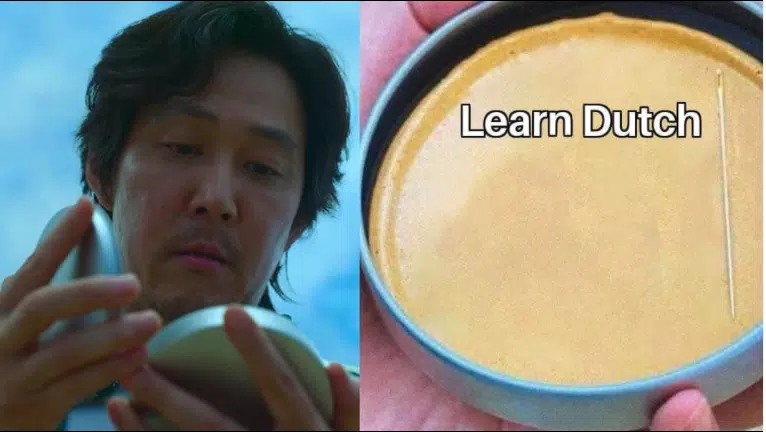Hello dear readers. Like myself, many of you speak Dutch as a second or even third language, or don’t speak it at all! Perhaps you’ve listened to over-confident Nederlanders who have told you that “Dutch is a very difficult language to learn and with your apparent IQ you’ll never master this language, (direct, not rude) so stick to speaking English so we can then complain about kut expats that live here but don’t even speak our language!”
So let me put your mind at rest and tell you that learning Dutch isn’t actually that difficult. The challenge isn’t learning Dutch but convincing Dutch people to take time out of their incredibly busy lives to actually speak their complex and beautiful language with you. Indeed, as it says in the prophecies of Anouk van der enge Dorp. “It’s easier for a group of black people to protest in Volendam and not have eggs thrown at them than it is to get a Dutch person to practice Dutch with a kut buitenlander!”
For that reason, I’ve gotten together with LearnDutchonline.nl to give you some insights into some of the most important Dutch verbs for expats to learn. No need to thank me!
The things I do for my readers!
1. Sturen
This is the most important verb in the Dutch language. It can mean to steer, as in to steer an oversized petrol guzzling SUV through the narrow streets of Amsterdam. But its most common meaning is ‘to send’.
| ik | stuur |
| jij | stuurt |
| hij | stuurt |
| wij | sturen |
| jullie | sturen |
| zij | sturen |
If you (incredibly) date or socialize with Dutch people. (Don’t worry if the latter never happens). Then this is one verb you’ll learn quickly after you’ve been somewhere for a drink or a bite to eat with a Dutch person.
So for example, a Dutch person working in an international environment might pick up some British polite bullshitting. In passing they might say to you, “oh you must come round to my place for a drink after work sometime”. Now, they really, really, don’t mean that at all. But being a naive expat, you take them up on their offer and turn up uninvited at their place one day at 18:00 hours. They invite you in but make it clear that they’re in the process of eating dinner and only have enough food for themselves and definitely not for unexpected guests.
As you were polite enough to bring a bottle of wine with you, they gratefully accept it and then proceed to give you a glass of cola flatter than the shoes of the average Dutch woman. They also take pity on you and give you two bitterballen. After 10 minutes of awkward small talk. “When are you going to learn Dutch? Do you find the Netherlands much better than the rotten country you left behind? Of course you do!” They then frogmarch you to the front door and back onto the street and suggest that you make an appointment with them next time. As you’re leaving your colleague says, “ik stuur je een Tikkie“
Later you receive a Whats App request for payment for “anderhalf bitterballen en een cola. Het was leuk, maar, don’t call us we’ll call you”.

2. Dansen
This verb is so important that last summer the Dutch (acting) minister for health proudly told the Dutch that lockdown restrictions were being lifted and that after being vaccinated they could immediately go “dansen met Janssen”. Sadly, the minister was unaware that it can take up to 10 days or more after being vaccinated before the full protection kicks in. This soon lead to festivals and clubbing being severely restricted within a matter of weeks following the ‘dansen met Janssen’ statement.
| ik | dans |
| jij | danst |
| hij | danst |
| wij | dansen |
| jullie | dansen |
| zij | dansen |

3. Weten
Weten means ‘to know” and you’ll learn that Nederlanders weten alles beter.
We only have to look at how slow the Netherlands was initially with the rollout of the first vaccines. While the rest of Europe raced ahead and vaccinated as many of their residents as possible. In Nederland, everything had to be discussed, analyzed, hypothesized and discussed again. You’d think that they’d have learnt from that, but nee! As the booster prik is rapidly deployed across Europe, the Netherlands started incredibly late again.

| ik | weet |
| jij | weet |
| hij | weet |
| wij | weten |
| jullie | weten |
| zij | weten |
4. Klagen
If you want to fit into Dutch society, this is your verb. Klagen, ‘to complain’. The Dutch (and certain British Shallow Men) love to complain! It’s a national pastime.
Alles is te duur /Everything is too expensive
“Ik will niet klagen maarrrrrr” /”I don’t want to complain (oh yes you do) but….”
| ik | klaagde |
| jij | klaag |
| hij | klaagde |
| wij | klaagden |
| jullie | klaagden |
| zij | klaagden |
hij klaagde over de prijs van de drankjes. He complained about the price of the drinks.
So there you have a basic introduction to four of the most critical Dutch verbs. To actually practise your Dutch with a native speaker contact Learn Dutch online to sign up for one of their Dutch courses. They’re also on Instagram.
No senders of Tikkies were hurt during the writing of this post.






